Crypto NFTs Triggering a Paradigm Shift in the Music Industry
Blur: NFT | Blur: NFT login | Blur: NFT connect | WalletConnect | Traders | What Is Blur Crypto
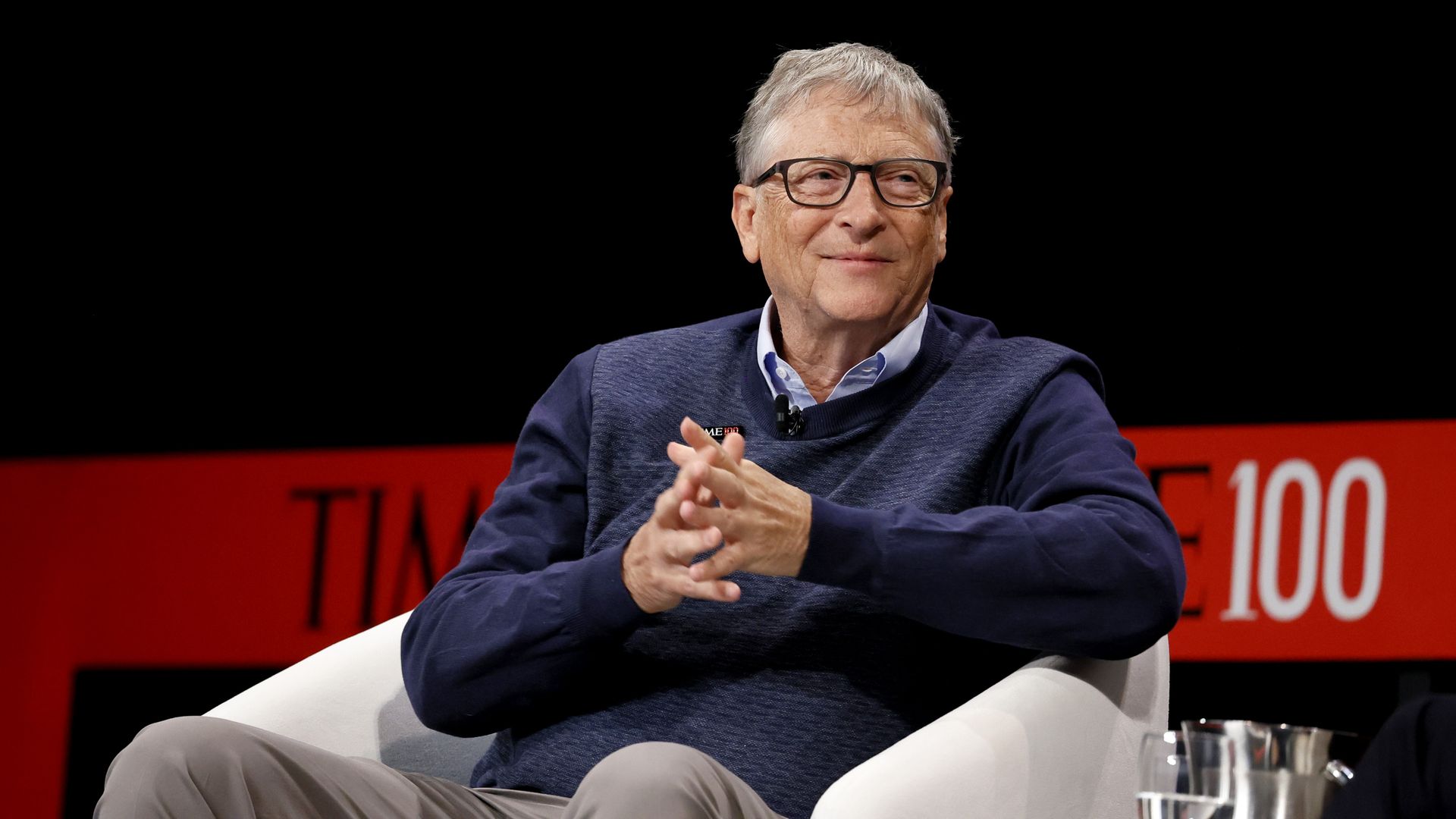
Blur: NFT | Blur: NFT login | Blur: NFT connect | WalletConnect | Traders | What Is Blur Crypto
In recent years, there has been a significant shift in the way the music industry operates, with technology being a driving force behind this transformation. Bill Gates, the co-founder of Microsoft and renowned philanthropist, has expressed his belief that this transformation is set to accelerate even further with the emergence of crypto NFTs.
Gates predicts that the music industry, which has traditionally relied heavily on physical sales and streaming platforms, will increasingly embrace this new digital era. Non-fungible tokens (NFTs) are unique digital assets that can represent ownership or proof of authenticity of a particular item. In the context of the music industry, NFTs can be used to create a direct connection between artists and their fans, providing new avenues for creative expression and revenue generation.
According to Gates, the use of NFTs in the music industry has the potential to revolutionize the way artists are compensated for their work. With traditional platforms, artists often struggle to earn a fair income from their music due to issues such as piracy and an imbalance in royalty payments. NFTs, on the other hand, can provide artists with a more direct and transparent way to monetize their creations, ensuring that they receive their fair share of the proceeds.
Furthermore, Gates believes that NFTs have the power to enhance the overall fan experience. Through the use of NFTs, fans can have access to exclusive content, such as behind-the-scenes footage or limited edition merchandise, creating a deeper connection between artists and their audience. This can also lead to a more sustainable model for the music industry, as fans are willing to pay a premium for these unique experiences and items.
While there are still challenges to be addressed, such as the environmental impact of NFTs and ensuring the protection of artists' intellectual property rights, Gates remains optimistic about the potential of this technology. As the music industry continues to evolve, the emergence of crypto NFTs could be a game-changer, allowing artists to have greater control over their careers and connecting them with fans in new and meaningful ways.
Bill Gates Believes
Bill Gates, the co-founder of Microsoft, has voiced his belief that the music industry is currently undergoing a transformative phase. According to him, this transition is being driven by the emergence of cryptocurrency-based non-fungible tokens (NFTs).
A New Era for the Music Industry
Gates argues that NFTs have the potential to revolutionize the way musicians distribute and monetize their work. By utilizing blockchain technology, NFTs offer a decentralized and secure platform for artists to directly connect with their audience and sell their music.
Traditionally, musicians have relied on intermediaries such as record labels and streaming platforms to distribute and market their music. However, with the advent of NFTs, Gates envisions a future where artists can bypass these middlemen and have more control over their creative output.
Unlocking New Revenue Streams
One of the key advantages of NFTs for musicians is the ability to generate new revenue streams. Not only can artists sell their music as NFTs, but they can also attach additional digital content or experiences to these tokens. This means that fans can not only own the music but also gain access to exclusive behind-the-scenes footage, virtual concerts, or even one-on-one interactions with their favorite artists.
Moreover, NFTs enable artists to earn royalties every time their music is resold in the secondary market. This provides a unique opportunity for musicians to benefit from the increasing value of their work and ensures that they continue to receive income even after the initial sale.
However, Gates also highlights the need for caution in this rapidly evolving landscape. He emphasizes the importance of ensuring that artists receive fair compensation and that intellectual property rights are respected in the world of NFTs.
In summary, Bill Gates believes that the emergence of crypto NFTs is revolutionizing the music industry by providing artists with more control over their work and unlocking new revenue streams. However, careful consideration and protection of artists' rights are essential to ensure a fair and sustainable ecosystem.
The Music Industry

The music industry is constantly evolving, and the emergence of crypto NFTs is believed to be one of the major transformative trends. Bill Gates, a prominent figure in the technology world, sees great potential in the integration of cryptocurrency and the music industry.
One of the key aspects of this transformation is the adoption of blockchain technology, which enables the creation and trading of non-fungible tokens (NFTs). These digital assets represent unique pieces of music, artwork, or other creative works and can be bought, sold, and owned by individuals. The NFT market has gained significant attention, and platforms like Wallet Connect have emerged to facilitate the seamless integration of cryptocurrencies and NFTs.
Through the use of Wallet Connect, musicians and artists can tokenize their works, providing a new means of monetization. This allows them to maintain ownership rights while giving fans the opportunity to support their favorite artists by purchasing exclusive NFTs. The traditional music industry has often left artists with limited control over their creations and minimal financial returns. However, crypto NFTs offer a decentralized and transparent system that empowers creators.
The Benefits of Crypto NFTs in the Music Industry
1. Direct Artist-to-Fan Relationships: With the use of crypto NFTs, artists can establish direct connections with their fans, eliminating the need for intermediaries such as record labels. This enables artists to have more control over their careers, creative process, and revenue streams. Additionally, fans can directly support their favorite artists by purchasing their NFTs, creating a more intimate and supportive community.
2. Enhanced Royalty Payments: Traditional royalty payments in the music industry can often be complex, slow, and subject to manipulation. With the use of blockchain technology, royalty payments can become more transparent, efficient, and accessible. Smart contracts can be integrated into NFTs, ensuring that artists receive fair compensation every time their work is used or sold.
3. Preservation of Artistic Value: The immutability of blockchain technology ensures that the integrity and value of an artist's work are preserved. This is particularly important in the digital age when piracy and unauthorized distribution are prevalent. By tokenizing their works as NFTs, artists can establish provenance, verify authenticity, and protect their intellectual property rights.
In conclusion, the music industry is undergoing a transformative shift as crypto NFTs become more widespread. The integration of cryptocurrencies and blockchain technology provides opportunities for artists, fans, and the industry as a whole. With platforms like Wallet Connect facilitating this integration, the future of the music industry looks promising, allowing for greater creativity, transparency, and financial empowerment.
Undergoing a Transformation
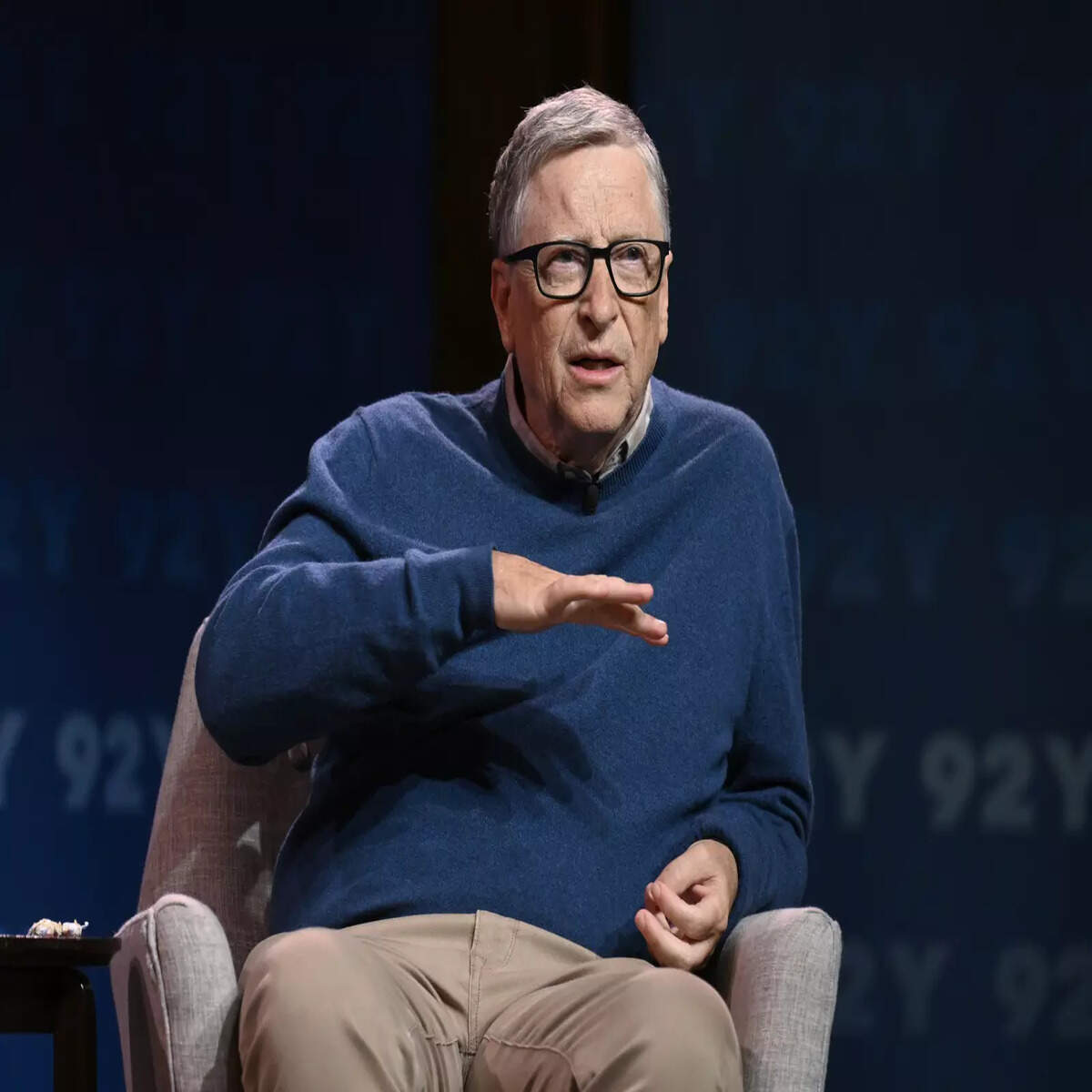
The music industry is currently undergoing a significant transformation as a result of the rise of crypto and NFTs. This emerging technology has the potential to revolutionize the way musicians and artists interact with their fans and monetize their work.
Bill Gates believes that crypto NFTs provide a unique opportunity for artists to regain control over their music and create new revenue streams. With the help of blockchain technology, artists can now mint and sell their music as unique digital assets, known as non-fungible tokens (NFTs). These NFTs can be bought, sold, and traded on various crypto marketplaces, allowing artists to connect directly with fans and collectors.
One of the key benefits of crypto NFTs is the ability to ensure authenticity and provenance of the music. Each NFT contains a unique digital signature, verifying its origin and ownership. This feature eliminates the risk of piracy and counterfeiting, giving artists a greater sense of security and control.
Furthermore, NFTs allow artists to monetize their work in new and innovative ways. By minting their music as NFTs, artists can earn royalties from every subsequent sale or transfer. This creates a sustainable revenue stream that can support musicians throughout their careers, beyond traditional methods such as album sales and streaming royalties.
In addition to financial benefits, crypto NFTs also enable artists to foster a deeper connection with their fans. Crypto marketplaces, such as Wallet Connect, allow fans to directly engage with artists by purchasing and owning their music. This direct interaction can lead to a more meaningful and intimate relationship between artists and fans, as well as unique experiences like exclusive content, virtual meet-ups, and personalized merchandise.
Conclusion
The emergence of crypto NFTs has undoubtedly sparked a transformation in the music industry. Artists now have the opportunity to take back control of their music and connect directly with fans, all while creating new revenue streams. As the technology continues to evolve, the music industry will likely see even more exciting and groundbreaking developments in the future.
Emergence of Crypto

Bill Gates believes that the music industry is undergoing a significant transformation due to the emergence of crypto and non-fungible tokens (NFTs). As cryptocurrencies gain popularity and acceptance, artists and musicians are finding new opportunities to monetize their work and engage with their fans.
What are Crypto and NFTs?
Cryptocurrencies, like Bitcoin and Ethereum, are digital or virtual currencies that use cryptography for security. They operate independently of traditional banking systems and are decentralized, meaning there is no central authority governing them.
NFTs, on the other hand, are unique digital assets that are stored on a blockchain. Unlike cryptocurrencies that can be exchanged on a one-to-one basis, NFTs cannot be exchanged on a like-for-like basis, hence the term "non-fungible". Each NFT has a distinct value and can represent ownership of a specific piece of digital content, such as art, music, videos, or even virtual real estate.
The Impact on the Music Industry
The emergence of crypto and NFTs has opened up new avenues for artists in the music industry. Through NFTs, artists can tokenize their songs, albums, and other digital content, allowing them to sell directly to their fans. This creates a more direct and intimate connection between artists and their audience, bypassing traditional intermediaries like record labels.
In addition, NFTs enable artists to retain greater control over their work and monetize their creations in previously unexplored ways. Artists can create limited edition NFTs, offering unique collectible items to their fans. They can also include special perks or access to exclusive content for NFT holders, further incentivizing their fans to own and support their work.
The rise of NFT marketplaces, such as Wallet Connect, has made it easier for artists to showcase and sell their NFTs. These platforms provide a marketplace for artists to connect with potential buyers, facilitating the exchange of digital assets in a secure and transparent manner.
Overall, the emergence of crypto and NFTs has the potential to revolutionize the music industry by empowering artists, fostering creativity, and redefining the relationship between artists and fans.
NFTs
The emergence of non-fungible tokens (NFTs) has revolutionized the music industry, and it's a trend that has caught the attention of Bill Gates. NFTs are unique digital assets that can represent ownership or proof of authenticity of a specific piece of content, such as music, artwork, or collectibles.
NFTs are built on blockchain technology, which ensures the security and authenticity of the digital assets. This technology allows artists and creators to tokenize their work, providing them with a new avenue for monetization and control over their intellectual property.
One of the main advantages of NFTs in the music industry is that they allow artists to directly connect with their audience and fans. With NFTs, musicians can offer exclusive content, limited edition releases, and even concert tickets, all in a secure and transparent manner.
Furthermore, NFTs enable artists to receive royalties directly and instantly, eliminating the need for intermediaries and ensuring fair compensation for their work. This has the potential to upend traditional royalty systems in the music industry, providing artists with more control and financial independence.
However, there are also concerns and challenges associated with NFTs. One of the main criticisms is the environmental impact of blockchain technology, which requires significant computing power and energy consumption. Efforts are being made to address these issues and develop more sustainable blockchain solutions.
Overall, NFTs have the potential to revolutionize the music industry by empowering artists, providing new revenue streams, and creating a more direct connection between artists and their fans. Bill Gates recognizes the transformative power of NFTs and their impact on the future of the music industry.
Influencing the Industry
The emergence of crypto NFTs is revolutionizing the music industry, and prominent figures like Bill Gates are recognizing the transformative potential. With the integration of blockchain technology, musicians now have the opportunity to monetize their work in ways that were previously unimaginable.
One key aspect of this transformation is the concept of "Wallet Connect". The Wallet Connect platform allows artists to create and sell their own NFTs, giving them full control over their intellectual property and revenue streams. This direct connection between artists and fans has the potential to reshape the traditional music industry hierarchy, putting the power back into the hands of the creators.
Expanding Revenue Streams
Traditionally, musicians have relied on revenue from concerts, album sales, and royalties. However, with the rise of crypto NFTs, artists now have the opportunity to explore new revenue streams. By creating and selling unique digital assets, such as limited-edition albums, concert tickets, or even virtual fan experiences, artists can generate additional income and offer their fans exclusive, one-of-a-kind content.
Moreover, these NFTs can be traded on various marketplaces, allowing fans to invest in their favorite artists and potentially profit from the increasing value of these digital assets. This presents a win-win situation for both artists and fans, as it creates a mutually beneficial relationship where both parties can reap the financial rewards.
Fostering Direct Fan Engagement
The integration of blockchain technology and crypto NFTs also allows artists to establish a direct connection with their fans. By tokenizing their music, artists can offer unique perks and experiences to their biggest supporters. For example, artists can create NFTs that grant access to exclusive backstage passes, meet-and-greets, or even private concerts.
This direct fan engagement not only strengthens the bond between the artist and their audience but also provides a sense of community and exclusivity. Fans can feel a greater sense of connection and ownership over the music they love, while artists can gain a loyal and dedicated fanbase.
Expanded revenue streams
Direct fan engagement
Greater control over intellectual property
Elimination of intermediaries
Transparency and traceability of transactions
In conclusion, the emergence of crypto NFTs is influencing the music industry in various ways. With the ability to create, sell, and trade unique digital assets, artists are expanding their revenue streams and establishing direct engagement with their fans. Through platforms like Wallet Connect, musicians now have the power to shape their own destinies and revolutionize the way we consume and interact with music.
Cryptocurrency-based Music
The music industry has experienced a significant transformation with the emergence of cryptocurrency non-fungible tokens (NFTs). Bill Gates, a well-known advocate for technological innovations, believes that NFTs have the potential to revolutionize the way musicians create, distribute, and monetize their music.
NFTs are a type of digital asset that are authenticated using blockchain technology. They provide a unique way of proving ownership and authenticity, allowing artists to create limited edition digital items such as albums, songs, and artwork. With NFTs, musicians can now sell their creations directly to fans, eliminating the need for traditional intermediaries such as record labels or streaming platforms.
One of the key advantages of cryptocurrency-based music is the ability to offer enhanced fan engagement and experiences. With NFTs, artists can create exclusive content, access to behind-the-scenes footage, and even virtual meet-and-greets. This creates a deeper connection between the artist and their fans, fostering a sense of community within the music industry.
Furthermore, cryptocurrency-based music also opens up new avenues for revenue generation. Artists can sell their NFTs through online marketplaces, where fans can bid on and purchase these unique digital assets. Additionally, artists can earn ongoing royalties from the resale of their NFTs, ensuring a continuous stream of income even after the initial sale.
However, the adoption of cryptocurrency-based music is not without its challenges. One of the main concerns is the environmental impact of blockchain technology, which requires a significant amount of energy to maintain. Efforts are being made to develop more energy-efficient blockchain platforms to mitigate this issue.
In conclusion, cryptocurrency-based music represents a transformative shift in the music industry. By leveraging NFTs and blockchain technology, musicians can take control of their own creative process, engage with their fans more intimately, and explore new revenue streams. As the industry continues to evolve, it will be fascinating to see how cryptocurrency-based music shapes the future of the music industry.
New Opportunities for Artists
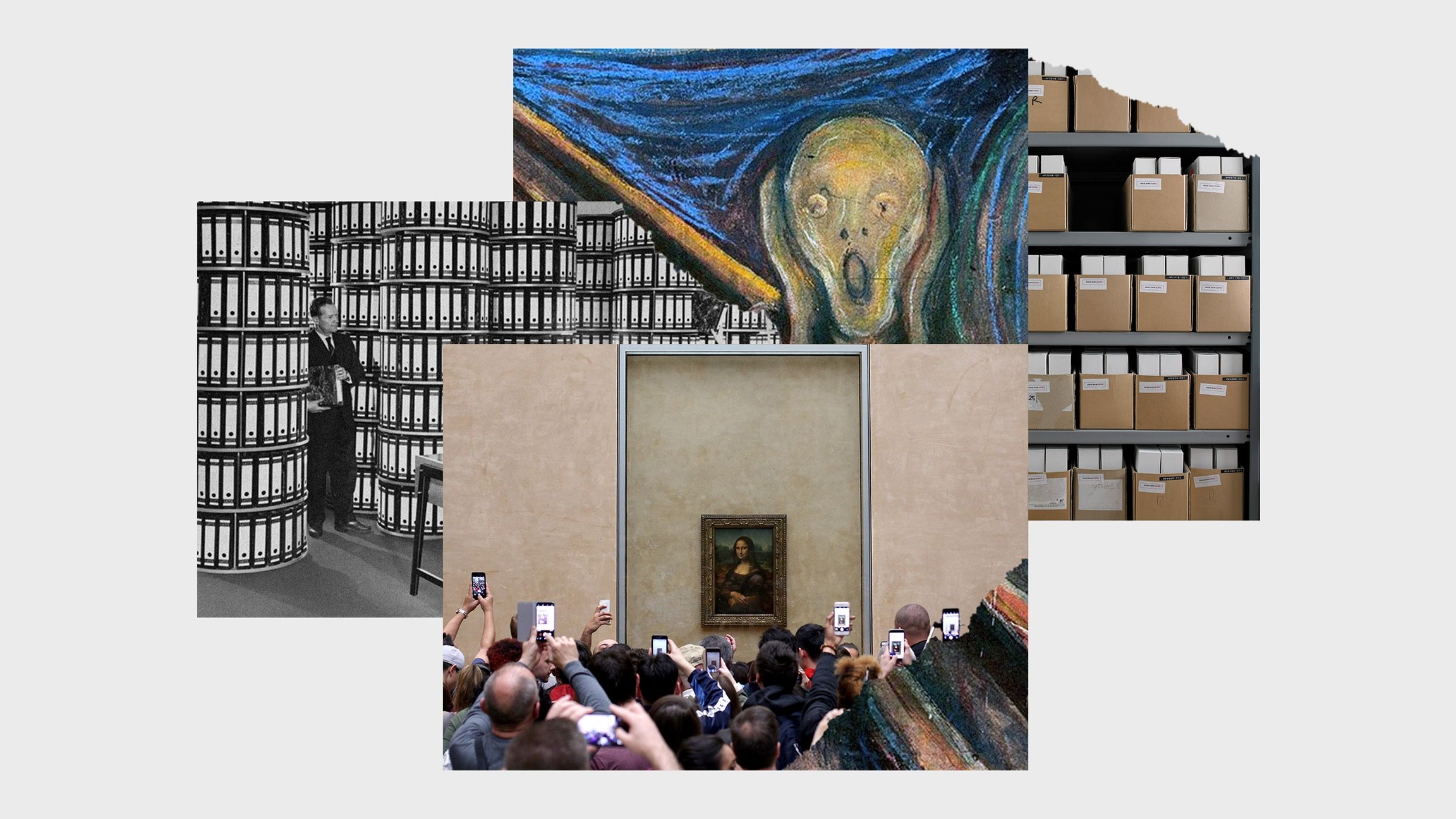
The emergence of crypto NFTs in the music industry has opened up new and exciting opportunities for artists. With the traditional music industry heavily reliant on record labels and streaming platforms, many artists have struggled to retain control over their own work and earn a fair income. However, the advent of crypto NFTs has given artists the ability to sell their music directly to their fans, cutting out the middleman and ensuring that they receive a larger share of the profits.
Crypto NFTs provide artists with a secure and transparent way to monetize their music. By tokenizing their work, artists can create unique digital assets that can be bought, sold, and traded on blockchain platforms. This not only allows artists to directly connect with their audience and fans, but it also enables them to receive royalties every time their music is sold or streamed.
Moreover, the use of crypto NFTs has the potential to revolutionize the way artists release their music. With traditional methods, artists were limited to releasing their music in standard formats, such as albums or singles. However, with crypto NFTs, artists can release individual songs, stems, or even exclusive remixes as unique digital assets. This gives artists the freedom to experiment and offer their fans a more personalized and immersive music experience.
In addition, the use of crypto NFTs allows artists to harness the power of blockchain technology. Blockchain provides an immutable and decentralized ledger, ensuring that the ownership and authenticity of music assets can be verified and tracked. This brings a level of trust and security to the music industry, reducing the risk of piracy and plagiarism.
1. Direct connection with fans
2. Increased control over their work
3. Greater share of profits
4. Ability to release unique digital assets
5. Royalties from every sale or stream
6. Trust and security through blockchain
Overall, the emergence of crypto NFTs has created a transformative shift in the music industry, offering artists new avenues for creative expression, financial success, and direct engagement with their fans. It is clear that this technology has the potential to revolutionize the way music is created, distributed, and consumed, providing artists with unprecedented opportunities to thrive in the digital age.
Changing Music Consumption
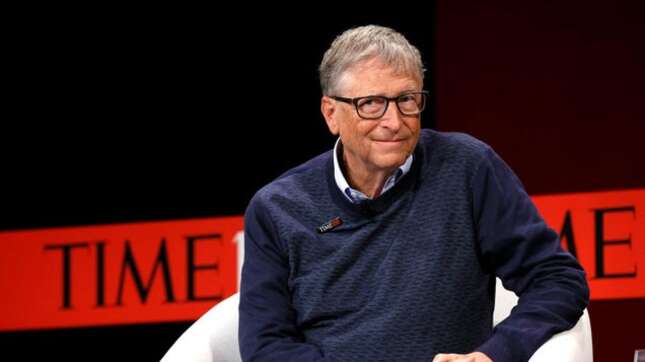
The emergence of crypto NFTs has revolutionized the music industry, leading to a significant transformation in music consumption. Bill Gates, a prominent advocate of this technology, believes that NFTs have the potential to change the way we listen to and interact with music.
Direct Artist-Audience Engagement
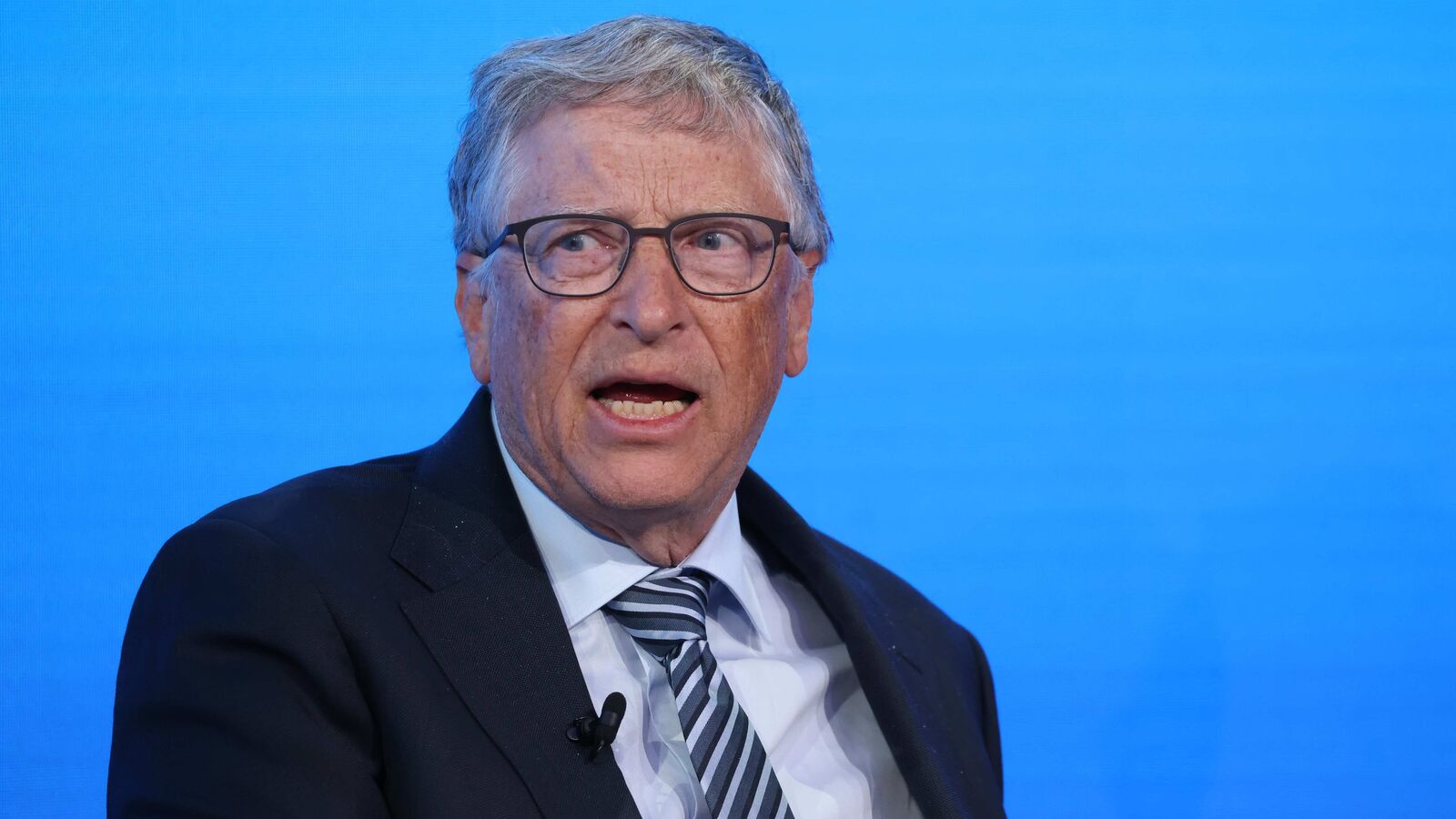
One of the key benefits of crypto NFTs in the music industry is the ability for artists to engage directly with their audience. With traditional music streaming platforms, artists have limited opportunities to connect with their fans. However, with NFTs, artists can release exclusive content, such as unreleased tracks, live performance recordings, and behind-the-scenes footage that can only be accessed by purchasing their NFTs. This direct artist-audience engagement fosters a stronger sense of community and loyalty among fans.
Ownership and Royalty Transparency
Another aspect that the music industry is experiencing through crypto NFTs is the concept of ownership and royalty transparency. In the traditional model, artists often struggle to receive fair compensation for their work due to intermediaries such as record labels and streaming platforms. NFTs allow artists to sell their music directly to fans, eliminating the need for intermediaries and ensuring that artists retain more control and profits from their creations. Additionally, the blockchain technology underlying NFTs records every transaction, providing transparency in royalty payments to artists.
This shift in music consumption also brings essential challenges and questions. While crypto NFTs offer exciting opportunities, some critics express concerns about the environmental impact of blockchain technology and the potential for copyright infringement. Moreover, the exclusivity and high prices associated with NFTs might limit access to music for some fans.
In conclusion, the emergence of crypto NFTs has brought about a transformation in the music industry, allowing for direct artist-audience engagement and increasing ownership and royalty transparency. However, this shift also presents challenges that need to be addressed for a more inclusive and sustainable future of music consumption.
Merging Technology and Music
The convergence of technology and the music industry has given rise to new opportunities and challenges. With the emergence of cryptocurrency and blockchain technology, the music industry is undergoing a transformative phase. Bill Gates, a prominent figure in the tech industry, believes that the implementation of crypto NFTs (non-fungible tokens) is revolutionizing how music is created, distributed, and consumed.
NFTs provide a way for artists to authenticate and monetize their digital content, such as songs, albums, and concert videos, by creating unique tokens that can be bought and sold on blockchain platforms. This allows artists to retain ownership of their work and earn royalties directly, without the need for intermediaries like record labels or streaming platforms.
Furthermore, NFTs enable fans to have a deeper connection with their favorite artists. By owning a unique token representing a piece of music, fans become more engaged and emotionally connected to the art. This ownership can also come with exclusive perks, such as backstage passes, meet-and-greets, or access to unreleased content, which enhances the overall fan experience.
The Potential for Innovation

The integration of NFTs into the music industry opens up a world of possibilities for innovation. Artists can experiment with new business models, such as fractional ownership, where fans can collectively own a share of a song or album. This not only increases fan engagement but also provides artists with alternative sources of revenue.
Moreover, blockchain technology can enhance transparency and trust within the industry. Smart contracts can ensure that artists receive fair compensation for their work, as royalties can be automatically distributed to the rightful creators based on predefined terms. This eliminates discrepancies and disputes that often occur in traditional royalty collection systems.
The Challenges
Despite the potential benefits, there are also challenges that need to be addressed. One of the main concerns is the environmental impact of blockchain technology, as it requires a significant amount of energy for mining and transaction verification. However, efforts are being made to develop more sustainable solutions, such as the use of proof-of-stake algorithms instead of energy-intensive proof-of-work systems.
Additionally, as the market for NFTs continues to grow, issues of copyright infringement and piracy may arise. Artists and platforms will need to implement robust mechanisms to protect intellectual property and ensure that creators are fairly compensated for their work.
In conclusion, the fusion of technology and music through the use of crypto NFTs is transforming the music industry. This innovative approach provides artists with new monetization opportunities and allows fans to have a more immersive and personal connection with their favorite music. However, it is essential to address challenges and ensure the sustainable and ethical implementation of these technologies to create a thriving ecosystem for both artists and fans.
Blockchain Revolution
The emergence of cryptocurrencies and non-fungible tokens (NFTs) has brought about a revolutionary transformation in the music industry. One of the leading advocates for this blockchain revolution is Bill Gates, who believes that these emerging technologies are changing the way music is created, distributed, and consumed.
The Power of Blockchain
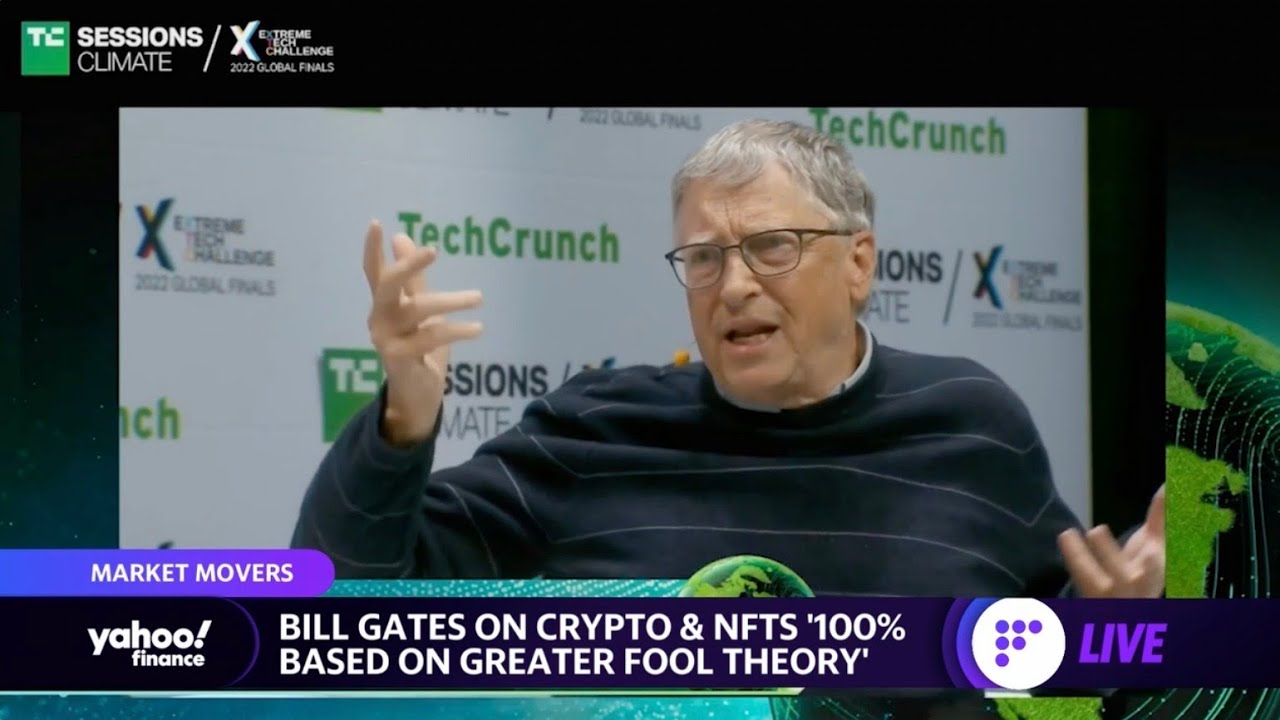
Blockchain technology, which acts as a decentralized and transparent digital ledger, has the potential to disrupt the traditional music industry. By using blockchain, artists can empower themselves by eliminating intermediaries and taking control over their own content.
Through blockchain, musicians can create digital music files that are encrypted and linked to their specific identity. This ensures the authenticity and ownership of their work, preventing issues of piracy and unauthorized distribution. Additionally, blockchain allows artists to receive immediate payments for their music, eliminating long wait times and reducing the need for record labels.
Non-Fungible Tokens (NFTs) in Music
The emergence of non-fungible tokens (NFTs) has further expanded the possibilities for musicians in the blockchain revolution. NFTs are unique digital assets that can represent ownership or proof of authenticity for any form of digital content, including music.
By tokenizing their music as NFTs, artists can create limited edition releases, offer exclusive content, and enable their fans to directly support them through the purchase of these unique tokens. NFTs have the potential to revolutionize the music industry's revenue model, allowing artists to generate income directly from their creations while fostering a stronger connection with their audience.
The Future of Music

With the blockchain revolution, the future of music looks promising. Artists have the opportunity to gain more control over their careers, reach a global audience without restrictions, and explore new ways of connecting with fans. The music industry is undergoing a transformation, and the adoption of blockchain technology and NFTs will continue to shape its direction.
As Bill Gates predicts, the music industry is on the cusp of a significant revolution, where artists can thrive in a decentralized and transparent ecosystem, harnessing the power of blockchain and NFTs to create, distribute, and monetize their music like never before.
Gates' Perspective on NFTs
In recent discussions, Bill Gates has shared his perspective on the emergence of Non-Fungible Tokens (NFTs) and their potential impact on the music industry. Gates believes that NFTs are transforming the way artists create, distribute, and monetize their music.
One of the key reasons for Gates' optimism about NFTs is their ability to provide artists with more control over their creative works. With NFTs, artists can directly connect with their audience and sell their music without relying on traditional intermediaries. This decentralized nature of NFTs empowers artists to maintain ownership of their intellectual property and set their own terms and conditions.
Gates also recognizes the potential of NFTs to revolutionize the way music is consumed. With the advent of blockchain technology, NFTs enable artists to create unique digital assets that can be bought, sold, and traded. This opens up new possibilities for fans to interact with their favorite artists and collect exclusive content, such as limited edition albums, concert recordings, and behind-the-scenes footage.
Furthermore, Gates believes that NFTs can address some of the longstanding challenges faced by musicians in the digital age, such as piracy and fair remuneration. By creating scarcity and provenance through blockchain, NFTs can make it easier for artists to protect their intellectual property rights and receive royalties directly from their fans, ensuring a more equitable distribution of revenue.
While Gates acknowledges that the music industry is still in the early stages of exploring NFTs, he remains optimistic about their potential to revolutionize the industry. He sees NFTs as a powerful tool for artists to showcase their creativity, engage with their fans, and secure their financial future in an increasingly digital world.
Future of the Music Industry
The music industry has always been a dynamic and ever-evolving landscape, constantly adapting to new technologies and trends. Over the years, we have witnessed the rise of vinyl records, cassette tapes, CDs, and digital downloads. Now, it seems that we are on the verge of yet another transformation with the emergence of crypto NFTs.
The Rise of Crypto NFTs
Crypto NFTs, or non-fungible tokens, have gained significant traction in recent years. These digital assets are stored on blockchain technology, which ensures their authenticity, scarcity, and ownership. In the music industry, artists can create NFTs that represent unique pieces of their work, such as albums, songs, or even concert tickets.
One of the key advantages of crypto NFTs is the potential for artists to exert more control over their music and revenue streams. By tokenizing their work, musicians can directly sell their NFTs to fans, cutting out intermediaries and keeping a larger share of their earnings. This decentralized approach has the potential to revolutionize the music industry's traditional revenue model.
Embracing a New Era of Music Ownership
Another exciting aspect of crypto NFTs is the idea of expanding music ownership beyond traditional formats. With NFTs, fans can become investors and owners of unique pieces of their favorite artist's work. Imagine owning a limited edition NFT that grants you exclusive access to unreleased tracks, backstage passes, or even virtual meet and greets.
Furthermore, NFTs allow for greater transparency and traceability in the music industry. The blockchain technology behind these assets provides a decentralized ledger that records every transaction, ensuring fair compensation for artists and preventing piracy. This newfound transparency can foster trust and encourage collaboration between artists, fans, and industry stakeholders.
However, it is important to note that the rise of crypto NFTs also presents challenges. The environmental impact of blockchain technology and the potential for fraudulent activities are among the concerns that need to be addressed for a sustainable and ethical future for the music industry.
In conclusion, the future of the music industry is undoubtedly intertwined with the emergence of crypto NFTs. These digital assets have the potential to transform the way music is created, distributed, and owned. While there are challenges to be overcome, the possibilities for artists, fans, and the industry as a whole are exciting. It will be fascinating to see how this technology evolves and shapes the future of music.
What does Bill Gates think about the music industry?
Bill Gates believes that the music industry is undergoing a transformation due to the emergence of crypto NFTs. He sees the potential of blockchain technology in revolutionizing the way artists create, distribute, and monetize their work.
How does Bill Gates see crypto NFTs impacting the music industry?
Bill Gates believes that crypto NFTs have the potential to change the music industry by giving artists more control over their work and allowing them to directly connect with their fans. He sees NFTs as a way for artists to create unique digital assets that can be sold and traded, providing new revenue streams and opportunities for collaboration.
What does Bill Gates think about the future of the music industry?
According to Bill Gates, the music industry's future will be shaped by blockchain technology and the emergence of crypto NFTs. He believes that artists will have more control and opportunities for monetization through NFTs, allowing them to create new business models and reach a global audience directly.
Why does Bill Gates believe in the potential of crypto NFTs for the music industry?
Bill Gates believes in the potential of crypto NFTs for the music industry because they provide a new way for artists to monetize their work and connect with fans. He sees NFTs as a way to create unique digital assets that can be bought and sold, providing artists with a direct revenue stream and a means of engaging with their audience on a deeper level.
How does Bill Gates see artists benefiting from crypto NFTs?
Bill Gates sees artists benefiting from crypto NFTs in multiple ways. Firstly, NFTs allow artists to maintain ownership and control over their work, ensuring that they are properly credited and compensated. Secondly, NFTs provide artists with a new and innovative way to monetize their work, creating additional revenue streams. Finally, NFTs enable artists to directly engage with their fans and build a stronger, more loyal community.
What does Bill Gates think about the music industry?
Bill Gates believes that the music industry is undergoing a transformation due to the emergence of crypto NFTs.
Why does Bill Gates believe that the music industry is undergoing a transformation?
Bill Gates believes that the emergence of crypto NFTs is causing a transformation in the music industry.
What is the impact of crypto NFTs on the music industry according to Bill Gates?
Bill Gates believes that crypto NFTs are transforming the music industry.
How does Bill Gates think the music industry is changing?
Bill Gates thinks that the music industry is changing because of the emergence of crypto NFTs.
Blur: NFT | Blur: NFT login | Blur: NFT connect | WalletConnect | Traders | What Is Blur Crypto
2022-2024 @ Bill gates believes that the music industry is undergoing a transformation due to the emergence of crypto nfts